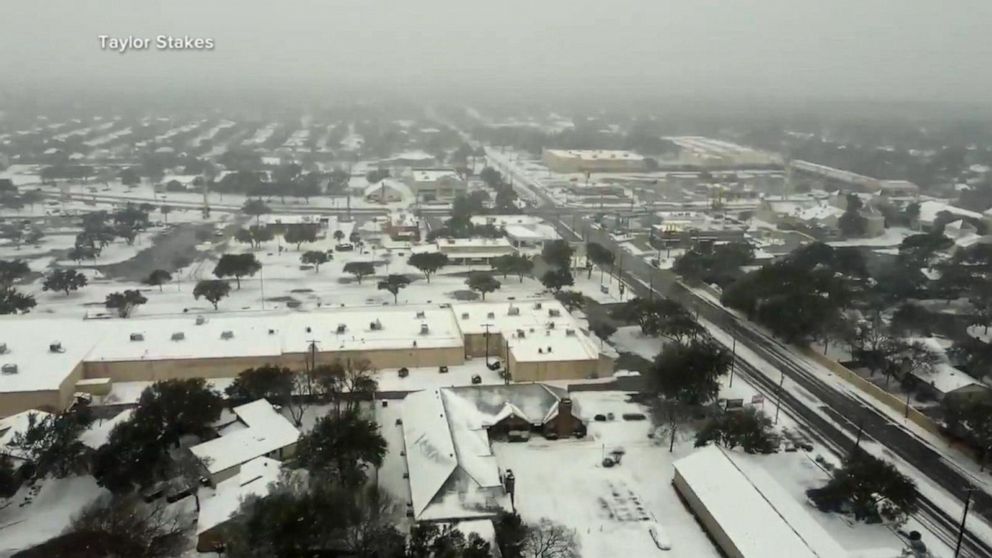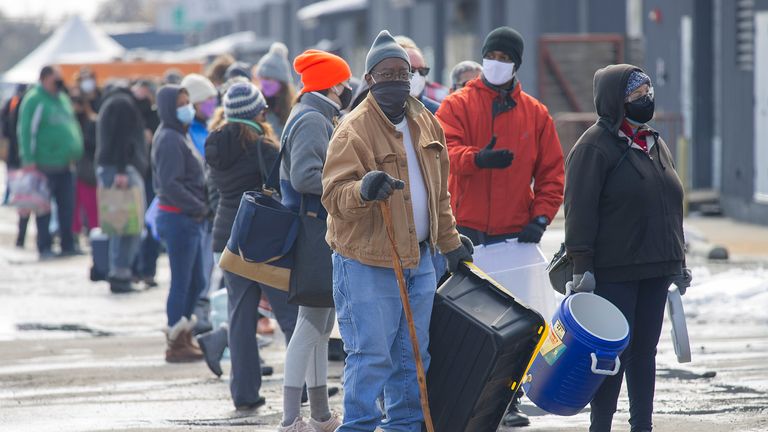In mid-February, a harsh winter storm hit Harris County, Texas, which includes the major cities Houston and Austin. This weather crisis was unprecedented for many residents because Texas’ location rarely brings snow. Moreover, when it snows, it usually does not stick to the ground, so the magnitude of this winter storm was highly unprecedented. As a result, the community continues to deal with the social and economic consequences. Texas power plants were not suited for this type of winter weather, so there was severe damage to their facilities. Additionally, residents were unprepared for the freezing temperatures, which resulted in water shortages, power outages, food shortages, and school closings. The severity of the storm and the absence of resources has even led to multiple deaths.
One major effect of the weather crisis for Texans was the lack of safe drinking water. Fourteen million people were forced to go under boil-water notices during the storm due to water shortages, low water pressure, and bursting frozen pipes. The decrease in water distribution pressure and the failure to disinfect water sanitization equipment were consequences of power outages and bursting pipes. One week after the harsh winter storms and weather-breaking low temperatures in Texas, 8.7 million people remained under boil-water notices. According to the Texas Commission on Environmental Quality, “1,259 boil-water notices remain in effect” because of unsafe drinking water. The Texas Environmental Commission states that people under the boil-water notice must boil water for at least two minutes before it can be used. Furthermore, emergency agencies and utilities have been operating water distribution centers all over Texas, which many people now depend on. Gradually, cities are returning to safe water conditions, but many are still under boil-water restrictions.
Texans have also been affected by widespread power outages. Additionally, people who were lucky enough to keep power during this severe winter storm are now paying sky-high electricity bills. In an interview with PBS, Christopher Connelly explains that “Texas has a deregulated market for electricity. It is designed so that when there is a shortage of electricity, the price will go up, and power companies will have an incentive to generate more electricity. That deregulated market also allows for the sale of unusual policies.” Texans now fear how much they will have to pay for electricity. For the future, Governor Greg Abbott is trying to make the power plants sustainable for winter weather.
GA English teacher Ms. Alicia Evan’s sister, Consuelo Martin, who lives on the northeast side of San Antonio, shared her experiences with the winter storm and how she and others in her community are currently dealing with the repercussions. As a resident in Texas, she was shocked by the magnitude of the storm: “Normally, if we do have snow, it melts before it hits the ground, so none of us were expecting it to stick around for four days. It was one of those panicky situations, and people everywhere were losing power. We had to fill up the bathtub with water and snow just in case we lost water to make sure that we could still flush our toilets”. Fortunately, she did not lose power but explained that “some people had to take stuff from their freezer, put it in a trash bag, and put it in the snow in order to keep it fresh.” With grocery stores closing, she also exclaimed, “everyone had to go to the Target plus and it was worse than Black Friday. You know how on Black Friday people camp out for stuff? It was like that.” Much like other Texans who kept their electricity through the storm, Consuelo Martin shared her fears for the economic repercussions because of how unprepared the state was: “We have reports of people getting $16,000 bills out in Houston. There is talk of them spreading out the cost for the next 10-12 years. We will be feeling the effect of one week for the next 10-12 years.”
The Texas weather storm was an unexpected crisis that affected people across the state. As Texans continue to recover from the damage, many hope that there will be better preparation for future unexpected events to avoid state-wide panic.


